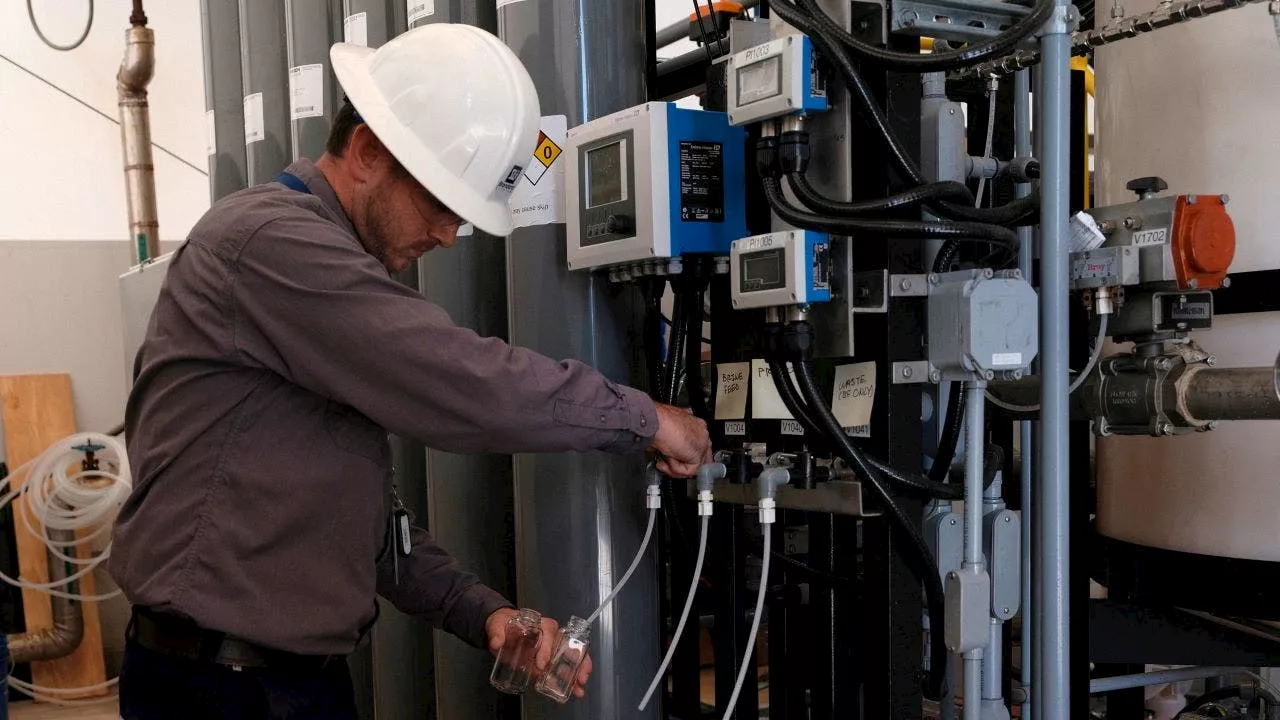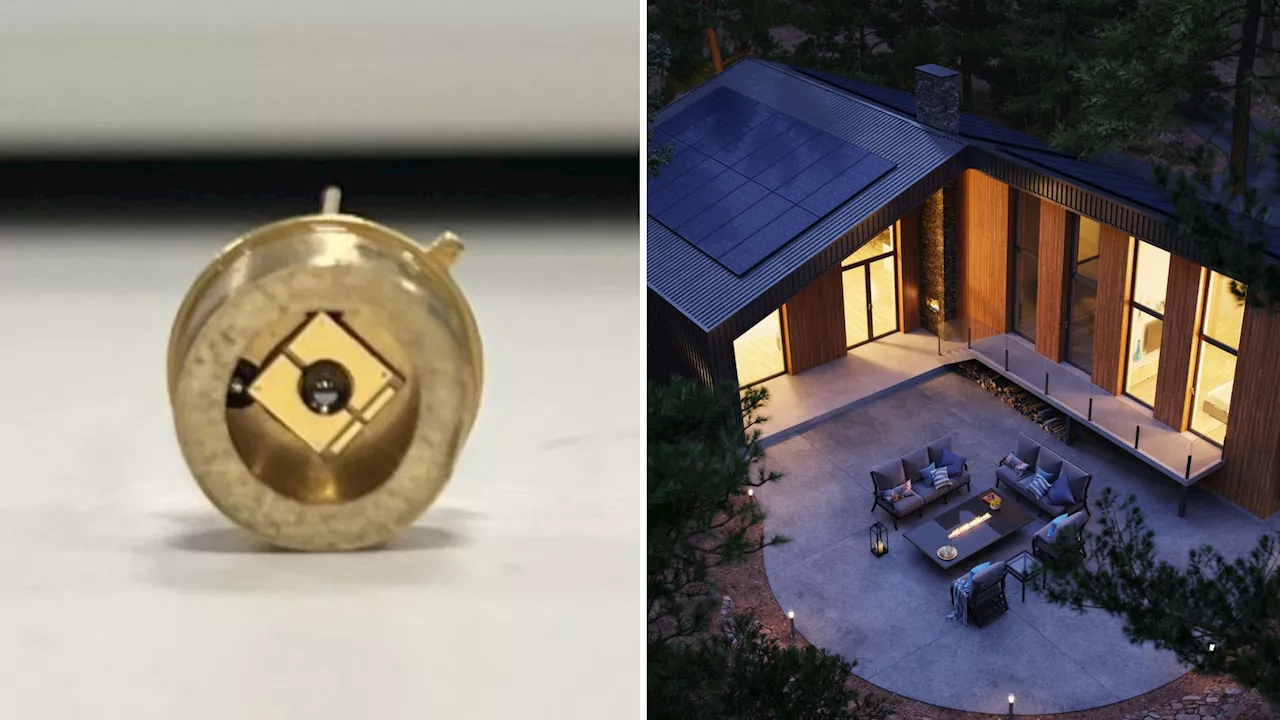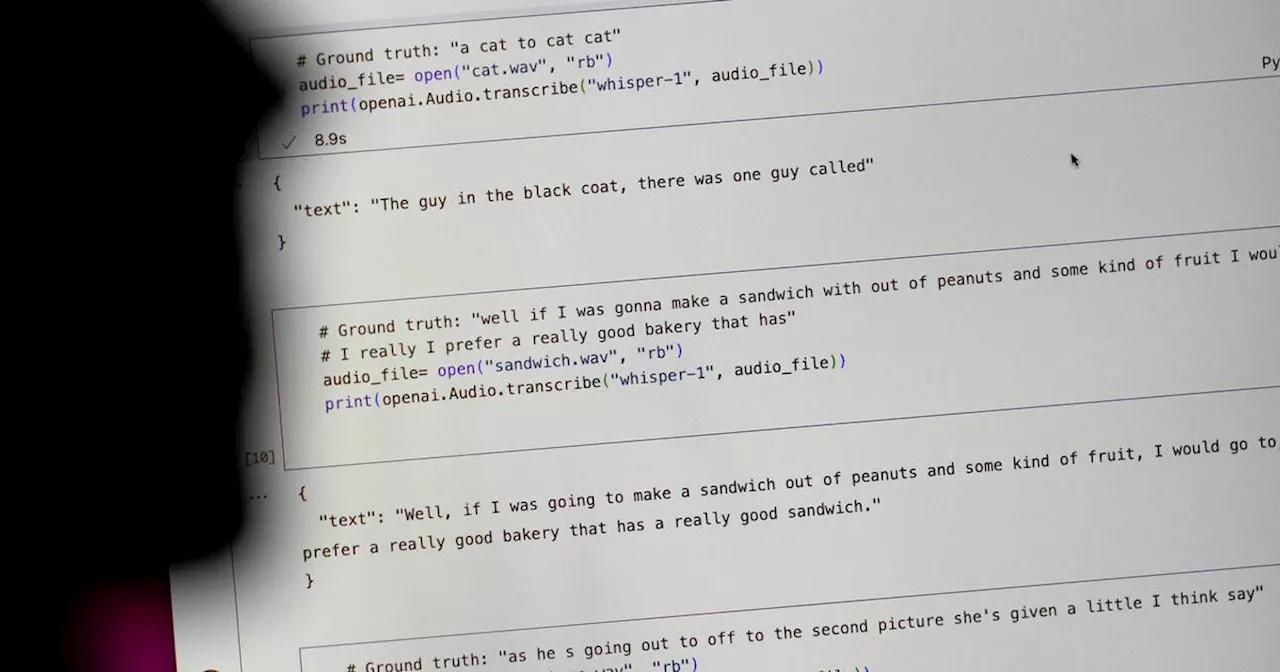Whispher is a popular transcription tool powered by artificial intelligence but it has a major flaw. It makes things up that were never said.
By Garance Burke and Hilke Schellmann, Associated PressAssistant professor of information science Allison Koenecke, an author of a recent study that found hallucinations in a speech-to-text transcription tool, works in her office at Cornell University in Ithaca, N.Y., Friday, Feb. 2, 2024. The text preceded by"#Ground truth" shows what was actually said while the sentences preceded by""text"" was how the transcription program interpreted the words.
More concerning, they said, is a rush by medical centers to utilize Whisper-based tools to transcribe patients’ consultations with doctors, despite OpenAI’ s warnings that the tool should not be used in “high-risk domains.” Such mistakes could have “really grave consequences,” particularly in hospital settings, said Alondra Nelson, who led the White House Office of Science and Technology Policy for the Biden administration until last year.
An OpenAI spokesperson said the company continually studies how to reduce hallucinations and appreciated the researchers’ findings, adding that OpenAI incorporates feedback in model updates. In an example they uncovered, a speaker said, “He, the boy, was going to, I’m not sure exactly, take the umbrella.”
Researchers aren’t certain why Whisper and similar tools hallucinate, but software developers said the fabrications tend to occur amid pauses, background sounds or music playing.
United States Latest News, United States Headlines
Similar News:You can also read news stories similar to this one that we have collected from other news sources.
 Food Acids Power Up: Researchers Develop Sustainable Battery TechnologyScientists at the University of NSW have created a groundbreaking battery component using compounds derived from food acids, like those found in wine and sherbet. This innovation could lead to more efficient, affordable, and sustainable lithium-ion batteries by replacing the environmentally harmful graphite anode.
Food Acids Power Up: Researchers Develop Sustainable Battery TechnologyScientists at the University of NSW have created a groundbreaking battery component using compounds derived from food acids, like those found in wine and sherbet. This innovation could lead to more efficient, affordable, and sustainable lithium-ion batteries by replacing the environmentally harmful graphite anode.
Read more »
 Researchers say Arkansas may have 19M tons of lithium critical for battery powerA new study by the U.S. Geological Survey found massive lithium reserves in southwestern Arkansas that could have between 5 million and 19 million tons of lithium.
Researchers say Arkansas may have 19M tons of lithium critical for battery powerA new study by the U.S. Geological Survey found massive lithium reserves in southwestern Arkansas that could have between 5 million and 19 million tons of lithium.
Read more »
 Researchers Develop Solar Power Technology That Works At NightA groundbreaking new technology developed by researchers at the University of New South Wales has the potential to generate solar power even after sunset. The device, which relies on thermoradiative power generation, harnesses the temperature difference between Earth's surface and the coldness of space to convert infrared radiation into electricity.
Researchers Develop Solar Power Technology That Works At NightA groundbreaking new technology developed by researchers at the University of New South Wales has the potential to generate solar power even after sunset. The device, which relies on thermoradiative power generation, harnesses the temperature difference between Earth's surface and the coldness of space to convert infrared radiation into electricity.
Read more »
 Researchers develop Janus-like metasurface technology that acts according to the direction of lightResearchers have overcome the limitations of existing metasurface technologies and successfully designed a Janus metasurface capable of perfectly controlling asymmetric light transmission.
Researchers develop Janus-like metasurface technology that acts according to the direction of lightResearchers have overcome the limitations of existing metasurface technologies and successfully designed a Janus metasurface capable of perfectly controlling asymmetric light transmission.
Read more »
 At-home brain stimulation for depression is safe and effective, according to researchersA device that delivers direct stimulation to the brain was found to be a safe and effective means of treating depression at home, according to a new study.
At-home brain stimulation for depression is safe and effective, according to researchersA device that delivers direct stimulation to the brain was found to be a safe and effective means of treating depression at home, according to a new study.
Read more »
 Russia amplified hurricane disinformation to drive Americans apart, researchers findIn July, American intelligence officials warned that 'unwitting Americans' were helping do Russia's work for it.
Russia amplified hurricane disinformation to drive Americans apart, researchers findIn July, American intelligence officials warned that 'unwitting Americans' were helping do Russia's work for it.
Read more »
